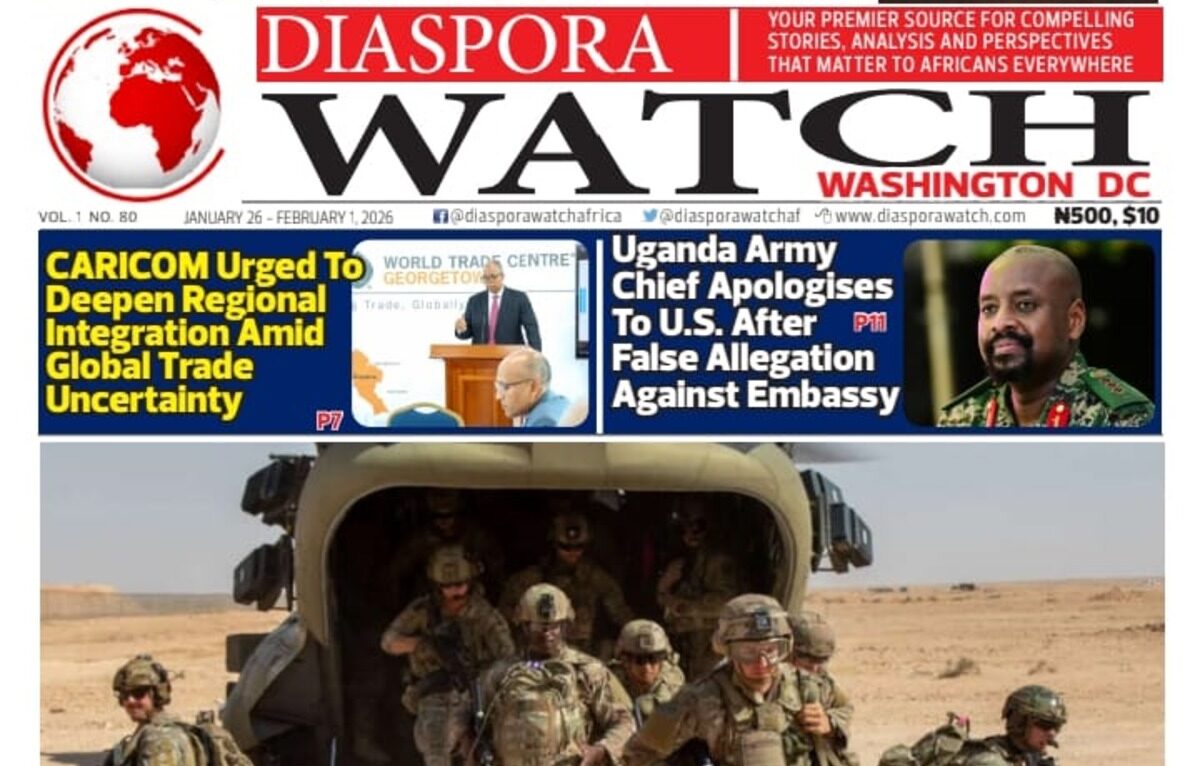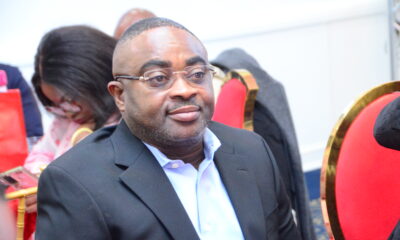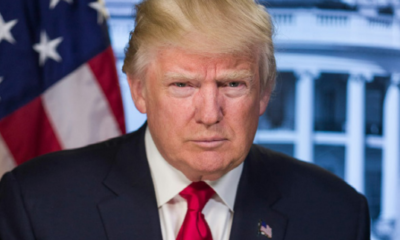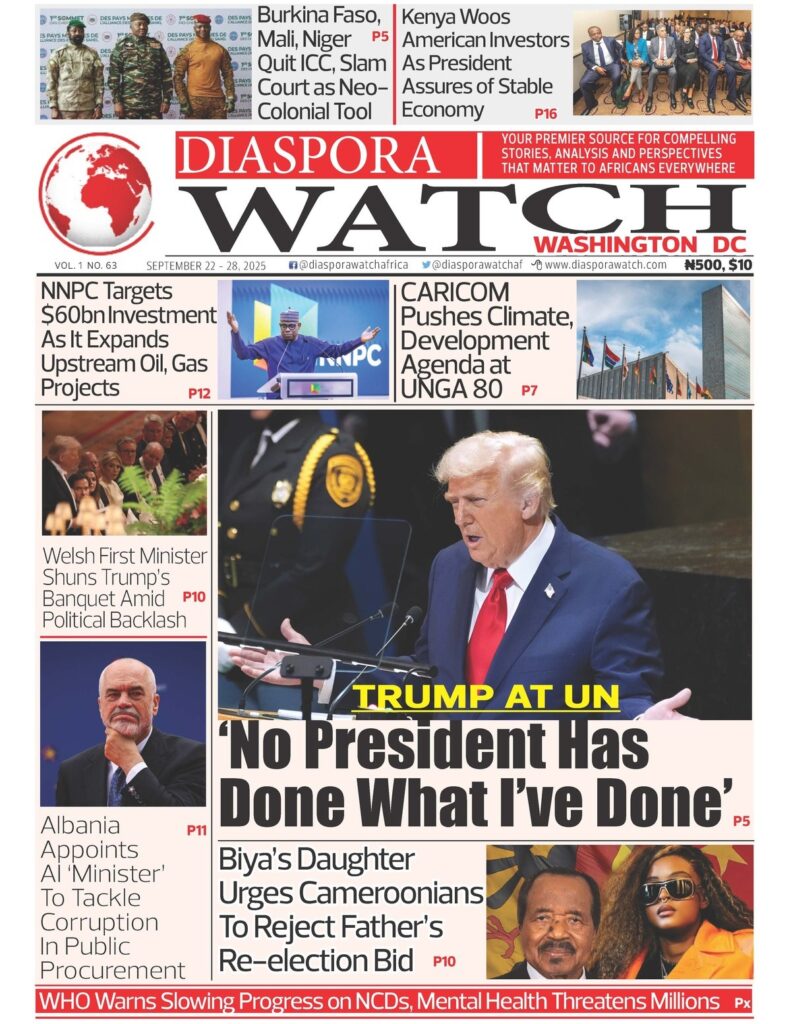Trending
From Front-Runner To Follower: Nigeria’s Economic Decline
In 1960, Nigeria’s GDP per capita exceeded China’s, indicating a lead in unit productivity and prosperity. However, by 1999, China’s GDP per capita had surpassed Nigeria’s, beginning a trend of increasing economic growth. Today, China is a global economic powerhouse, while Nigeria struggles to reclaim its lost lead.
Nigeria and China share a similar history, with both countries gaining independence in the mid-20th century. However, their economic trajectories have diverged significantly. China’s economic reforms, implemented in 1978, prioritized innovation, education, and controlled population growth. In contrast, Nigeria economic growth has been hindered by lack of strategic planning and implementation. 1999 marked a turning point in the economic fortunes of both nations. China’s
GDP per capita surpassed Nigeria’s, and the gap has continued to widen. Today, China’s GDP per capita stands at $24,558, while Nigeria’s is $6,318. China’s poverty rate has declined significantly, with less than 0.1% of the population living on less than $2.15 per day.
Read aslo : Nigeria’s Economic Reviews Downspin: Multinationals Flee As Challenges Mount
In contrast, Nigeria’s poverty rate remains high, with 30.9% of the population living on less than $2.15 per day. China’s GDP growth rate has consistently outpaced Nigeria’s, with a growth rate of 6.1% in 2020 compared to Nigeria’s 1.9%. A key factor in China’s success has been its meritocratic system, which ensures that political leaders are well educated and experienced. In contrast, only 42.9% of Nigerian presidents have completed a university education since 1960. China’s economic reforms have been driven by a focus on innovation, education, and controlled population growth. The country’s export led growth strategy and “Made in China 2025” initiative have positioned it as a leading global player in manufacturing. Indonesia’s success offers valuable lessons for Nigeria.
The country’s focus on manufacturing, investments in transportation and storage, and effective implementation and monitoring teams have driven its economic growth.
The Nigerian Economic Society’s economic dialogue offers a chance for Nigeria to reclaim its lost lead. Will the country take the cue and transition from participant to convener of a Forum on Nigeria-Africa Cooperation (FONAC) or Forum of Nigeria-Asia Cooperation (FONASC)?
Nigeria’s lost lead is a cautionary tale of how a country can fall behind due to lack of strategic planning and implementation. However, it is not too late for Nigeria to reclaim its lead. By learning from China’s and Indonesia’s success, Nigeria can drive its economic growth and reclaim its position as a leading economic power in Africa.
Diaspora
Zenith Bank to Host Diaspora Engagement, Banking Services for Nigerians in Texas

Zenith Bank Plc has announced a Diaspora engagement programme aimed at providing essential banking and identity services to Nigerians residing in the United States, with activities scheduled to hold in Houston and Dallas, Texas.
The initiative, according to information obtained by Diaspora Watch Newspaper, targeted at Nigerians in the diaspora, is designed to ease access to banking services and strengthen financial inclusion among citizens living abroad.
The programme will feature free Bank Verification Number (BVN) enrolment, National Identification Number (NIN) enrolment, seamless account opening, account reactivation, and digital banking onboarding.
Diaspora Watch Newspaper further gathered that participants will also benefit from mobile and internet banking activation, instant debit card issuance, and access to mortgage products offered at concessionary rates.
The engagement will further provide a platform for interaction with IT experts, creatives, influencers, and other service exporters, in line with efforts to deepen diaspora participation in Nigeria’s economy.
The Houston leg of the exercise will take place at the Hilton Houston Post Oak by the Galleria on February 24, 25 and 28, 2026, while another session will hold at The Ion, 4201 Main Street, Houston, on February 26 and 27, 2026.
The Dallas session is scheduled for March 3, 4 and 5, 2026, at the Sheraton Dallas Hotel by the Galleria.
Activities are expected to run daily from 9:00am to 6:00pm. Prospective participants have been advised to come along with valid proof of address as stipulated in the registration requirements.
Zenith Bank noted that the programme forms part of its ongoing diaspora banking strategy, aimed at supporting Nigerians abroad with convenient access to financial services and fostering stronger economic ties between the diaspora community and Nigeria.
For further enquiries, interested individuals are encouraged to contact Zenith Bank’s Diaspora Banking desk via WhatsApp or telephone, or through the official diaspora banking email.
Register for the event: JOIN ZENITH BANK IN THE UNITED STATES OF AMERICA TEXAS
Website: https://www.zenithbank.com
WhatsApp/call: +234 913 107 2967
Zenith Bank to Host Diaspora Engagement, Banking Services for Nigerians in Texas
Diaspora
Diaspora Watch Vol. 81

Diaspora Watch Newspaper has released its 81st edition, delivering a sharp, authoritative and globally attuned package of journalism that interrogates power, policy and influence at a critical moment in international affairs.
Diaspora Watch FREE DIGITAL VIEW: https://diasporawatch.com/3d-flip-book/diaspora-watch-vol-81/
On-Demand Print: https://www.magcloud.com/browse/issue/3259915?__r=1069759
SUBSCRIBE TO DIASPORA WATCH NOW ON THE LINK BELOW: https://diasporawatch.com/subscribe-to-diaspora-watch-newspaper/
This latest edition captures the shifting dynamics of global security, diplomacy and governance, with a lead focus on deepening U.S.–Nigeria security engagement against the backdrop of rising terror threats. The report probes the strategic calculations behind the move and what it means for regional stability, sovereignty and counter-terrorism cooperation in West Africa.
Beyond security, the edition reflects the volatility of a world in transition. From renewed uncertainty in Libya following reports surrounding Muammar Gaddafi’s son, to mounting tensions in the United States over federal immigration enforcement and public protest, Diaspora Watch situates breaking developments within their broader political and social contexts.
The newspaper also turns attention to the future, spotlighting technological innovation aimed at Africa’s digital inclusion, as well as urgent calls for stronger regional integration in the Caribbean amid global trade headwinds. Energy policy debates, evolving diplomatic relations between Africa and the United States, and the deepening humanitarian emergency in the Democratic Republic of Congo are examined with clarity, balance and depth.
Rounding out the edition is a culture-driven back-page story that blends politics, celebrity and controversy, underscoring how influence and perception increasingly intersect in the global public space.
With its 81st edition, Diaspora Watch Newspaper reinforces its position as a trusted platform for diaspora-focused journalism—bold in perspective, rigorous in reporting and committed to telling Africa’s story within a rapidly changing world.
Stay connected with the world around you – read Diaspora Watch today!
Celebrating African excellence and spotlighting pressing global issues.
#DiasporaWatch #AfricaInFocus #GlobalNews #CulturalVoices #AfricanPerspective
Diaspora
Diaspora Watch Vol. 63

Diaspora Watch Unveils 63rd Edition: A Global Mirror of Power, Politics and People
Diaspora Watch Vol. 63 FREE Digital View: https://diasporawatch.com/3d-flip-book/diaspora-watch-vol-63/
On Demand Print: https://www.magcloud.com/browse/issue/3172875?__r=1069759
Subscribe to Diaspora Watch Now on the link below!!!
https://diasporawatch.com/subscribe-to-diaspora-watch-newspaper/
The 63rd edition of Diaspora Watch Newspapers has hit the stands this week, bringing readers a compelling mix of global power plays, continental shifts, economic pursuits and cultural flashpoints.
From New York to Niamey, London to Lagos, the edition offers a panoramic view of unfolding events shaping the world and Africa’s place within it.
On the cover, U.S. politics takes centre stage as President Donald Trump, addressing the United Nations, boldly declares: “No President Has Done What I’ve Done.” In a dramatic twist on African geopolitics, Burkina Faso, Mali and Niger jointly announce their withdrawal from the International Criminal Court, condemning it as a “neo-colonial tool.”
Kenya’s President turns to America’s corporate giants, assuring investors of stability in a pitch to attract capital inflows. Nigeria equally seizes the moment, with the NNPC outlining ambitious upstream oil and gas expansion plans targeting $60 billion in investment. Across the Caribbean, CARICOM leaders rally at the UNGA 80, pressing hard for climate justice and a development agenda that cannot be ignored.
Europe is not left out of the storm: the Welsh First Minister pointedly shuns Trump’s banquet, fueling political ripples back home, while in Africa, Cameroon’s political dynasty faces unusual pressure as President Biya’s daughter openly calls on citizens to reject her father’s re-election bid. Elsewhere, Albania breaks new ground with the appointment of an AI “Minister” to combat corruption in public procurement — a move being hailed as futuristic governance.
On the health front, the World Health Organization issues a sobering warning, noting that slowing progress on non-communicable diseases and mental health is putting millions at risk globally.
Sports enthusiasts will find gripping drama on the back page, where Manchester United’s crisis-hit boss lays down the gauntlet with a blunt declaration: “My way or no way.”
-

 Extra2 days ago
Extra2 days agoUS Veteran, Walter Obi Urges Compassionate Leadership at Valentine’s Event in US
-

 Diaspora19 hours ago
Diaspora19 hours agoZenith Bank to Host Diaspora Engagement, Banking Services for Nigerians in Texas
-

 Business1 week ago
Business1 week agoZenith Bank, Excel Global Media Discuss Strategic Partnership
-

 Analysis2 days ago
Analysis2 days agoIs Nasir El-Rufai on the Peril? By Alabidun Shuaib AbdulRahman
-

 News1 week ago
News1 week agoTrade, Tension as Trump Threatens US–Canada Bridge Opening
-

 News1 week ago
News1 week agoSenegal Police Arrest 14 in Transnational Paedophile Ring Linked to France













